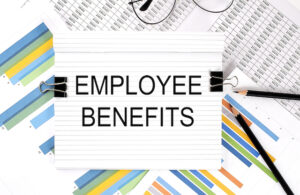Employed American adults experience a wide range of emotions when selecting benefits and younger employees are less knowledgeable about what their plans cover, a gap that could end up costing them.
This according to the findings of the Health Insurance Knowledge Snapshot, a new survey from HR software platform for small businesses Justworks.
The findings show that many employed Americans misunderstand basic facts about health insurance despite high levels of self-reported knowledge. Knowledge gaps among U.S. employees may also, in part, lead to some negative emotions experienced during the enrollment process. With confusion around key terms like “deductible,” as well as the workings of Health Savings Accounts (HSAs) and Flexible Spending Accounts (FSAs), it’s no surprise that Americans with insurance wish others would help them make their enrollment decisions, and that benefits—or perceptions about them—can play an important factor as to why employees leave or look for jobs.
The knowledge gap
While the majority of employed Americans (82%) say they feel that they are knowledgeable about the health insurance enrollment process, including over a third (39%) who feel they are very knowledgeable, over half (53%) do not feel they are getting the most out of the health insurance options available to them. A similar proportion (54%) don’t know the full scope of what their current health insurance offers them.
“The Health Insurance Knowledge Snapshot shows us that there is a major knowledge gap in benefits understanding and a huge opportunity for education,” said Elizabeth Sklar, Manager, Research & Customer Insights at Justworks. “With the current market conditions (inflation, the tightening of salaries and potential recession) it is more important than ever that employees understand their benefits so as not to miss out on potential cost-savings.”
Younger employed adults aged 18-34 (67%) and aged 35-44 (71%) are more likely to incorrectly answer or to be unsure about some basic facts about health insurance—especially the definition of a deductible; vs. adults aged 45-64 (45-54 41%; 55-64 26%).
Employed American adults are unsure about who to turn to if they have questions and many times fall back on selecting the same insurance every year, potentially undercutting employers’ efforts to improve the enrollment experience by adding new plans or offering coverage at new price points. Key indicators of this knowledge gap and lack of confidence are:
- 72% of employees who are involved in their health insurance decisions say they wish someone would tell them what the best health insurance for their unique situation is.
- 44% of employed U.S. adults say they feel uncomfortable asking their HR representative questions about health insurance enrollment.
- 47% say they call their friends or family members for help when enrolling in health insurance.
- 62% of employed Americans who are involved in their health insurance decisions say they don’t usually change their health insurance selections year over year because it’s too stressful.
- Nearly half (49%) feel pressure to select the most expensive health insurance option to ensure they have the coverage that they need.
Benefits and employee retention
Given the current labor market, understanding benefits is always important. Among employed Americans, 66% say that they were looking for a new job, or open to a new one.
In some cases, the consideration of benefits outweighs pay, as 78% of U.S. employees say that having health insurance that meets their specific needs is important to them when looking for a new job, and 64% say that they would be willing to sacrifice some pay for better health insurance, if they were looking for a new job.
In addition, nearly two-thirds (63%) say that their company’s health insurance offerings impact how much they want to keep working there.
“It’s not just about what employers are able to offer, but how their employees experience those offerings,” Sklar said. “If employers can offer preemptive guidance and education to their employees around how to select their best benefit option, employers will better help their employees and increase likelihood of talent retention.”
Employees who are either actively looking or open to a new job (58%) are more likely to say they don’t feel they are getting the most out of the health insurance options available to them compared to their peers (44%), highlighting the impact of benefits education and an enrollment experience that ensures employees feel secure and valued.
For the full findings, click here.









This is not surprising . . . nor is it restricted to just health insurance . . . the same applies to disability (long and short), dental, vision and . . . retirement plans.
As plans become more complicated, employees are given more choices AND more flexibility, they almost invariably make poor choices. They have no clue about even the basics . . . many have no idea what their major med deductible or OOP is . . . they don’t know how to check par vs non-par providers online . . . if they even think about checking networks they call the carrier. Denied claims are rarely appealed . . . they often pay the bill and go on. Except when they don’t . . . and then they ignore the bill until it goes into collections.
Hardly anyone understands managed care and it doesn’t stop when they retire. They still do not understand MAPD and end up repeating the same mistakes . . . paying bills for denied claims that are never appealed. They have become so conditioned to being bounced around by the claim system they believe that’s the way it has been and always will be.
This is not surprising . . . nor is it restricted to just health insurance . . . the same applies to disability (long and short), dental, vision and . . . retirement plans.
As plans become more complicated, employees are given more choices AND more flexibility, they almost invariably make poor choices. They have no clue about even the basics . . . many have no idea what their major med deductible or OOP is . . . they don't know how to check par vs non-par providers online . . . if they even think about checking networks they call the carrier. Denied claims are rarely appealed . . . they often pay the bill and go on. Except when they don't . . . and then they ignore the bill until it goes into collections.
Hardly anyone understands managed care and it doesn't stop when they retire. They still do not understand MAPD and end up repeating the same mistakes . . . paying bills for denied claims that are never appealed. They have become so conditioned to being bounced around by the claim system they believe that's the way it has been and always will be.